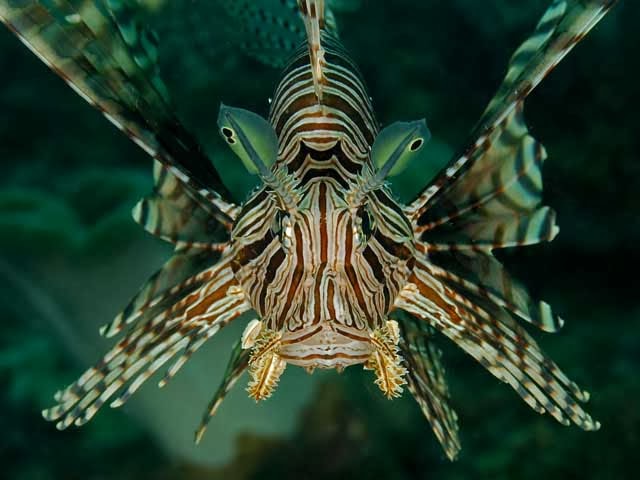Lionfish invade Atlantic Ocean: Ocean Support Experts Express Growing Fear
The clear waters around Bermuda are as picturesque as you can imagine, and the brilliantly colored fish swimming around are like something from a crayon box. But a serious problem lurks behind the beautiful facade: the lionfish.
Lionfish are not native to the Atlantic Ocean. The venomous, fast reproducing fish are aggressive eaters and will consume anything and everything, gorging so much they are actually getting liver disease. With no known predators -- except human beings -- they can wipe out 90% of a reef.
"The lionfish invasion is probably the worst environmental disaster the Atlantic will ever face," said Graham Maddocks, president and founder of Ocean Support Foundation, which works with the government and research agencies to help reduce the lionfish population in Bermuda.
While the problem is only beginning to escalate, many in the marine preservation field are already concerned for the marine life that surrounds the lionfish.
Ecologist James Morris with the National Centers for Coastal Ocean Science said that while this may not be the worst epidemic the Atlantic Ocean has faced, it does have the makings of a disaster. He said the lionfish has brought a "big change in biodiversity," and it is what he called "the most abundant top-level predator on some coral reefs (in the Atlantic)."
Lionfish were first recorded decades ago and their population has grown quickly. They produce 30,000 to 40,000 eggs every few days and are sexually mature by 1 year old. Today, you can find them throughout the Amazon, the Bahamas, the Caribbean and in the waters along North Carolina.
As a non-indigenous species, lionfish are especially dangerous to the ecosystem because fish in the Atlantic lack a native instinct to stay away from them.
How did they get there? Ask Florida.
Florida pet owners are blamed for their release into unfamiliar waters. Believe it or not, DNA evidence traces all lionfish in the Atlantic back to only six to eight female lionfish.
Culled from CNN
Don't forget to follow me on Twitter @simplysamad for more exciting gist, photos, interviews, reviews, jokes, quotes and other entertaining content | BB pin: 2B3D28E3.
By: SAMOD BIOBAKU

Comments
Post a Comment
Please Leave a comment